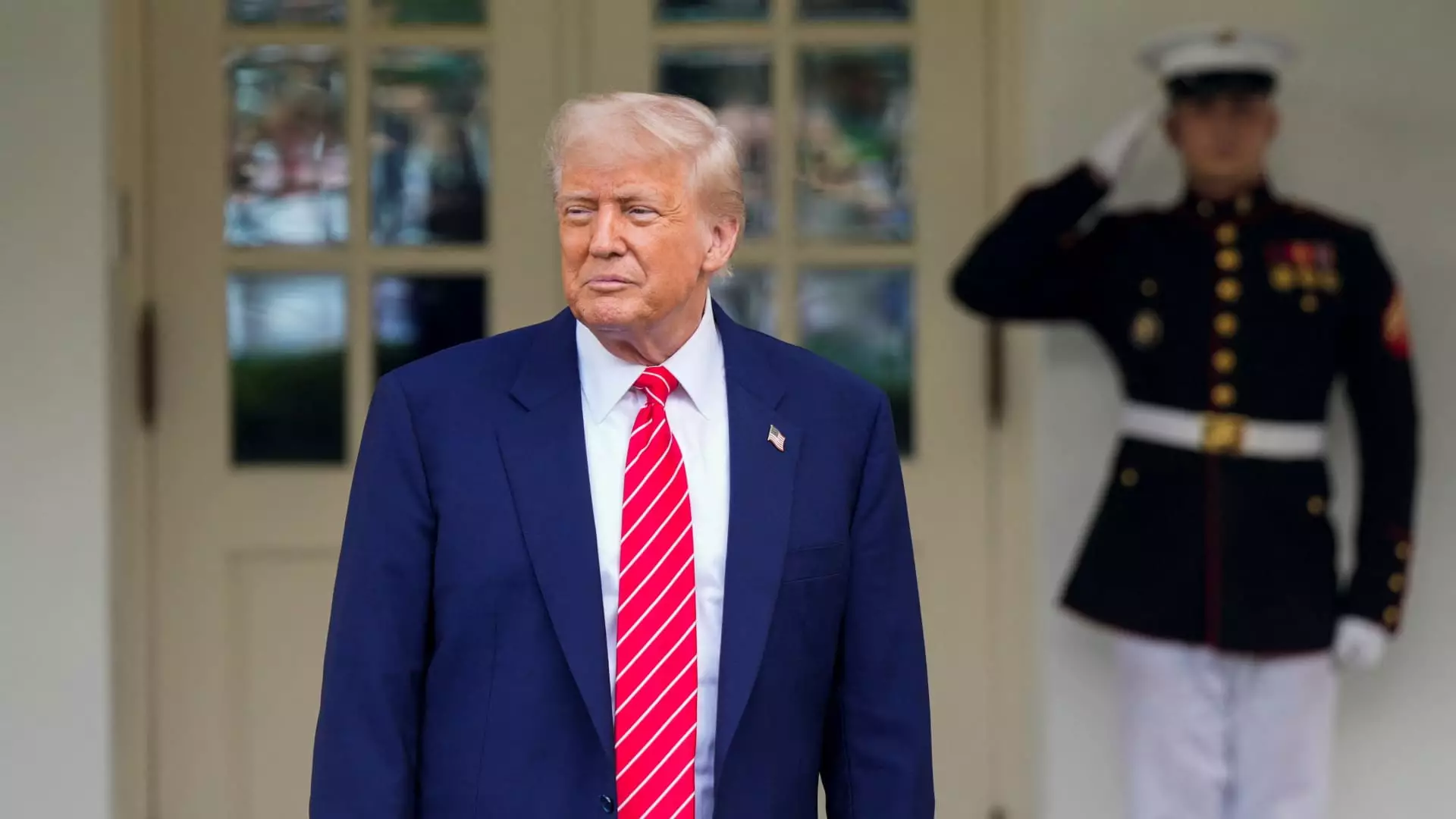As the cryptocurrency landscape evolves, it appears that one of the most significant barriers to effective legislation comes not from the complexities of the technology itself, but from the personal conflicts of interest involving the very individuals in power. President Donald Trump’s entrenchment in personal cryptocurrency ventures, particularly his meme coin, $TRUMP, has created a scenario fraught with ethical dilemmas and potential corruption that overshadow vital legislative efforts. The recent rejection of the GENIUS Act, aimed at regulating stablecoins, serves as a telling example of how Trump’s business interests are placing a stranglehold on critical advancements in cryptocurrency regulation.
The GENIUS Act was proposed to establish comprehensive federal rules for stablecoins—digital currencies anchored to the value of legal tender, like the U.S. dollar. The bill seemed promising, garnering initial bipartisan support and signaling a willingness among some lawmakers to engage in serious discussions about crypto regulation. However, lingering doubts around Trump’s own ties to the cryptocurrency market resurfaced, putting the brakes on an essential governmental response to a rapidly growing financial landscape.
The Taint of Corruption
Senator Jeff Merkley openly expressed the ethical concerns surrounding Trump’s crypto endeavors, calling the situation a “profoundly corrupt scheme.” Merkley’s contention is compelling, as it highlights how influence-over-presidential financial portfolios could create a system ripe for exploitation and above all, distrust among the public. Members of Congress increasingly view Trump’s dual role as a politician and businessman as a guiding factor in the opposition to bills like GENIUS, which were viewed as critical for protecting the stability of the cryptocurrency market.
Support for the GENIUS Act dwindled notably when nine Senate Democrats withdrew their backing, pointing to the lack of stringent provisions against anti-money laundering and foreign investment entities. Their concerns squarely landed on Trump’s financial entrenchments, suggesting that personal profit motives could warp legislative integrity. The Democrats’ hesitance to support a bill entwined with Trump’s interests speaks volumes about their apprehension in a political landscape demanding accountability and ethical governance.
The Ripple Effect on Crypto Innovation
The ramifications of Trump’s actions extend beyond mere legislative setbacks—they pose tangible threats to the future of the cryptocurrency industry in the U.S. Investors and entrepreneurs depend on clear regulations to foster innovation, yet the current climate fueled by the personal financial interests of national leaders has stifled creative growth within the space. As Ryan Gilbert, founder of fintech venture fund Launchpad Capital, pointedly noted, it is disheartening that personal matters overshadow potential progress in crafting sound policy.
Instead of pushing for transparent regulations that adequately address consumer protection and operational standards within the cryptocurrency scene, the conversations have largely veered into murky water. The chilling effect of Trump’s business ties on policy discussions could render the U.S. a laughingstock internationally, pushing potential investors and innovators to seek greener pastures elsewhere. This could eventually lead to the U.S. losing its competitive edge in an industry primed for explosive growth.
Detractors From Within
Even internal supporters are starting to recognize the damning consequences of Trump’s entanglements on their ability to effectuate change. Prominent Democratic figures like Senators Elizabeth Warren and Kirsten Gillibrand have come forth, emphasizing the urgency for tightening regulations around stablecoins while withholding support for any bill that feels influenced by Trump’s financial interests. Gillibrand’s vocal commitment toward enhancing consumer protections underscores a critical shift in the perception of legislative priorities in relation to personal conflicts within the highest echelons of government.
Calls for investigations into the president’s crypto-related activities, as voiced by Senator Blumenthal, increasingly illustrate how legislators are being pushed toward a defensive posture rather than one aimed at crafting beneficial policy. By focusing on Trump’s financial records and scrutinizing the ramifications of personal cryptocurrency ventures, there is a widening gap between effective governance and political maneuvering propelled by self-interest.
Finding a Path Forward
The failure of the GENIUS Act demonstrates that a collaborative legislative approach is becoming increasingly difficult when personal fortunes are at stake. As lawmakers scramble to reap the rewards of bipartisan support, the road ahead remains littered with landmines of ethical conflicts and the accountability vacuum created by Trump’s own interests. This tumultuous environment necessitates a reevaluation of how elected officials can operate transparently without the hue of corruption clouding their legislative intentions.
With global sentiment shifting toward a more stringent regulatory emphasis in the crypto space, the U.S. stands at a precipice: adapt to the emerging realities of cryptocurrency or risk being left behind. The interplay of personal ambition and public service has never been so stark, and the urgency for recalibrating this balance has never been more critical. The stakes are high—not just for individual lawmakers but for the future integrity and innovation of an industry poised to transform economies.

